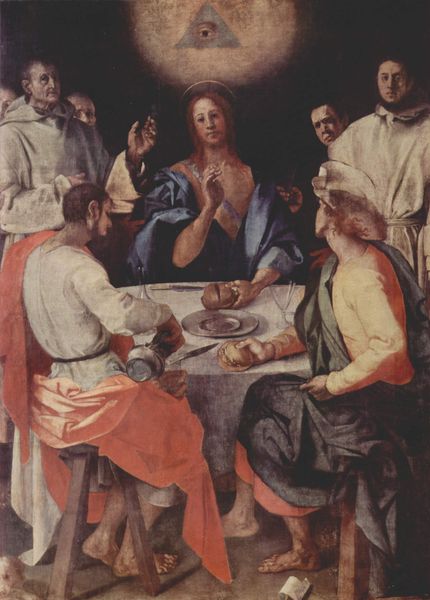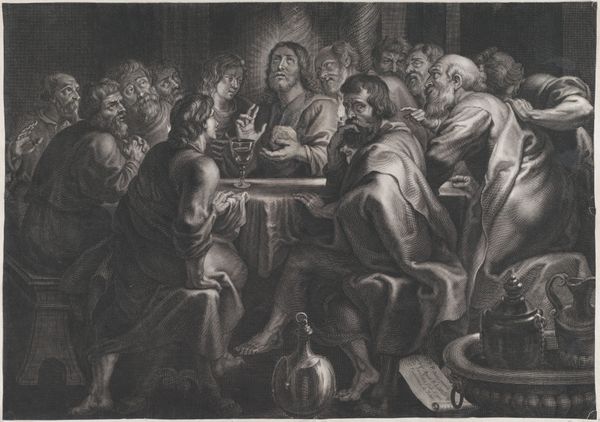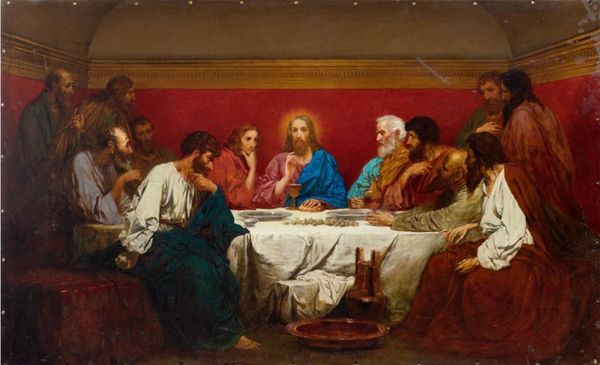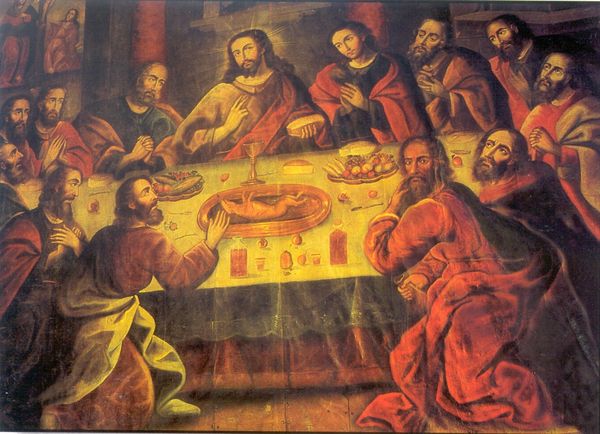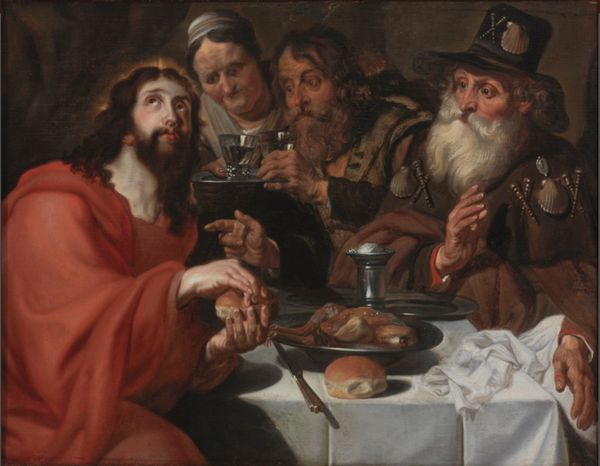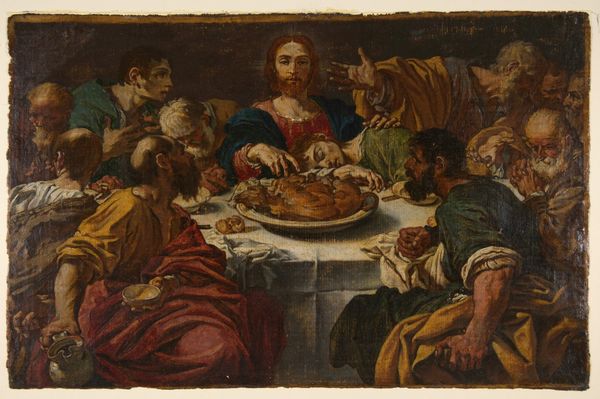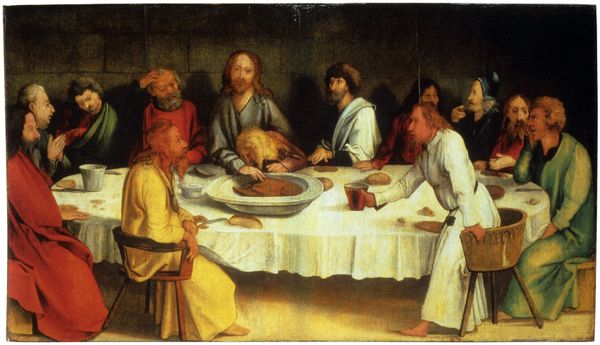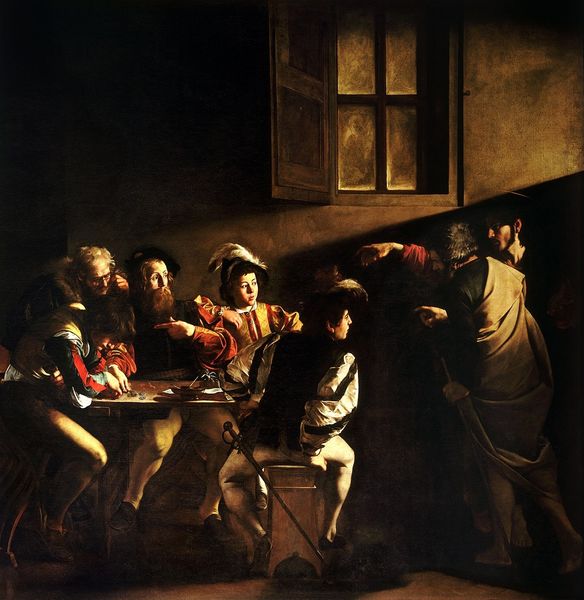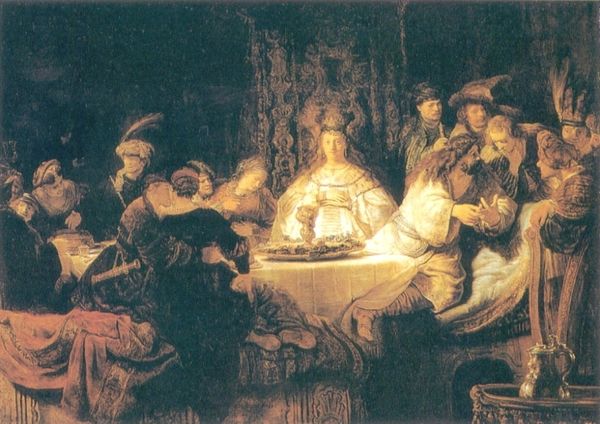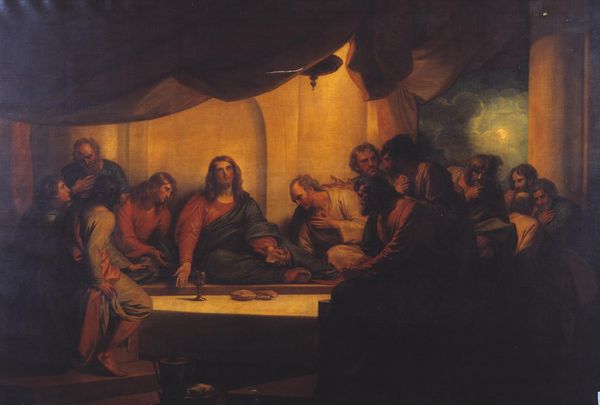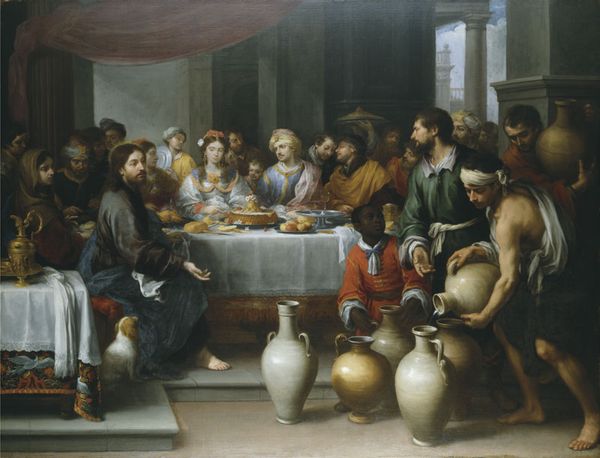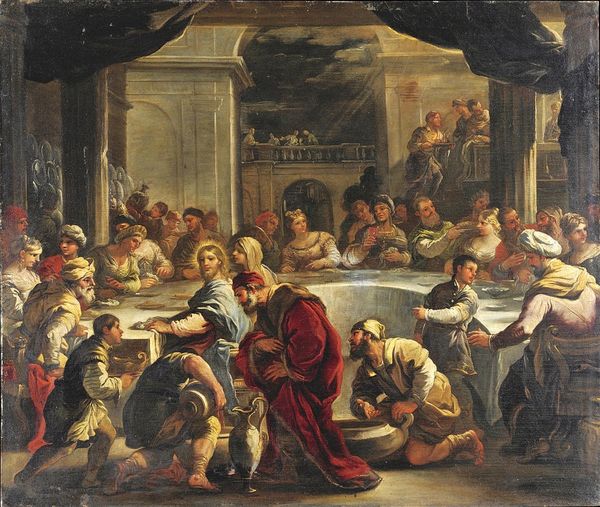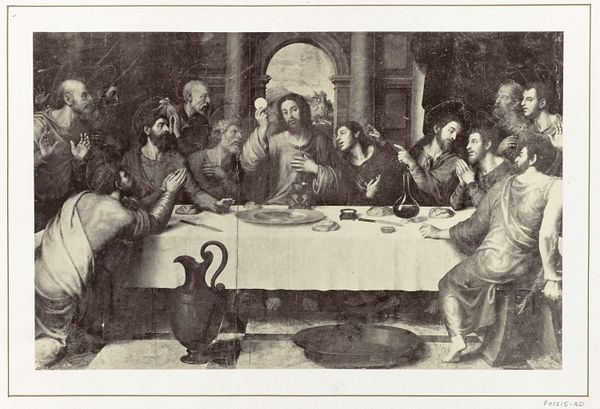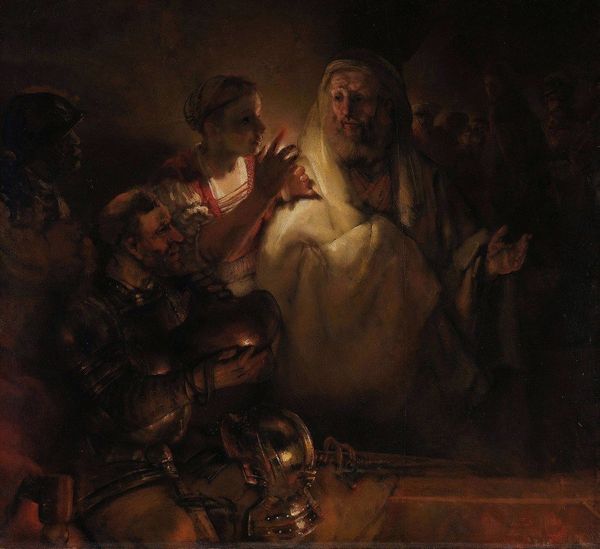
Dimensions: support: 162 x 210 mm
Copyright: CC-BY-NC-ND 4.0 DEED, Photo: Tate
Editor: This is John Cranch’s "Monks Merrymaking." The figures are so expressive, and the oil paint has a real richness. What do you make of the scene here? Curator: Note how Cranch uses readily available materials to depict a scene of consumption and leisure. The roughly hewn table, the earthenware bowl, even the monks' robes, all speak to a specific economic reality and localized production. Editor: So, it's less about the narrative and more about...the stuff? Curator: Exactly! Consider the labor involved in producing the wine they’re drinking, the crafting of the glass. These are the material conditions that enable this "merrymaking." Editor: I hadn’t thought about it that way. It gives a totally different context to the image. Curator: Indeed, shifting focus to production and consumption reveals the socio-economic underpinnings. Editor: Fascinating. Thanks!
Comments
tate 9 months ago
⋮
http://www.tate.org.uk/art/artworks/cranch-monks-merrymaking-t01048
Join the conversation
Join millions of artists and users on Artera today and experience the ultimate creative platform.
tate 9 months ago
⋮
This is one of two small pictures by John Cranch showing monks at work and at play. The companion picture (now in a private collection) shows the monks looking very bored, seated around a table strewn with books, a skull, and an hour glass. Here they are in a more festive mood. Since the middle ages monks had a reputation for indulgence. In Protestant England they were an especially common target for satire, representing everything that was deemed to be corrupt within the Catholic church. Gallery label, May 2002
